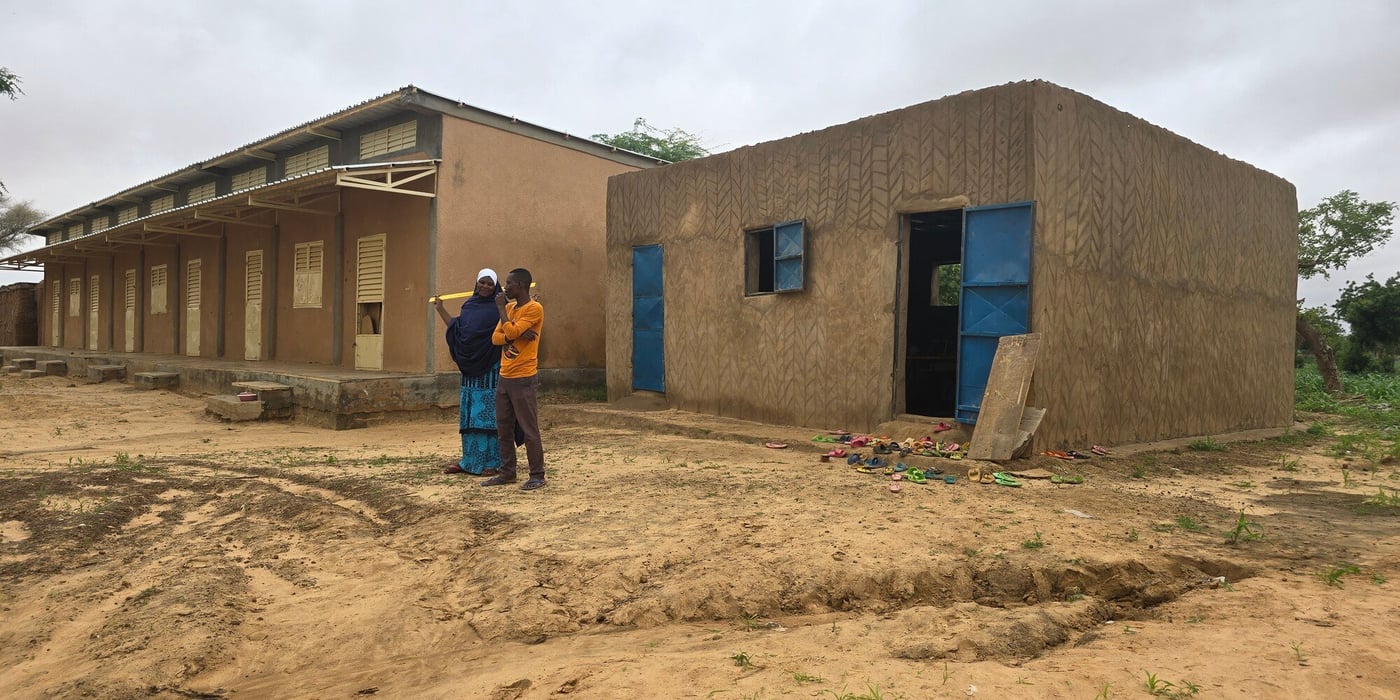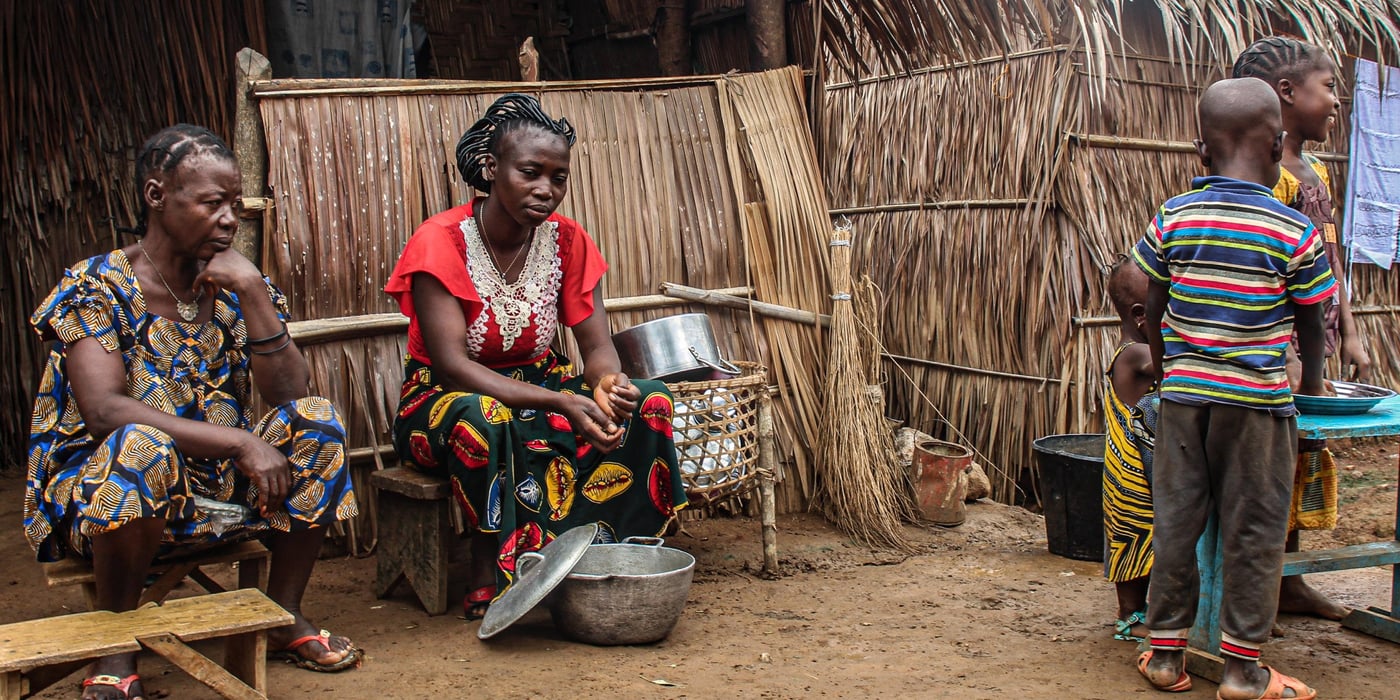
The girl is one of many children in Carnot, the west of the country towards the border with Cameroon, who tells stories about violence and fear to NRC’s education team in CAR.
“Ensuring the safety and security of the population is the most urgent issue and prevents hundreds of thousands from returning to their homes to start rebuilding their lives”, says NRC’s regional protection and advocacy adviser, Torill Sæterøy.
Trauma
Torill Sæterøy was in CAR on a field trip in December.
“It is clear that the children in the hardest affected areas are suffering from a high degree of trauma, I have seen the drawings of children who, when asked to draw the environment that they live in and the path from home to school, drew people with machine guns, people being killed, also children, and people being killed by knives”, she says.
Dire needs
Over the past year, the Central African Republic (CAR) has experienced a major political crisis which has resulted in a violent conflict that has affected nearly the entire population of 4,6 million people.
The violence escalated in the beginning of December 2013, displacing close to one million people internally in the country.
Today 430.000 people are still internally displaced, while 423.000 people from CAR are living as refugees in other countries. 2.7 million people are in dire need of humanitarian assistance and many face grave lack of protection.
Altogether 2.3 million children are affected by the ongoing crisis.
Children out of school
Another girl (11), also from Carnot in the west, told NRC:
“As I was going home from school an armed man stopped me on the road. He started to harass me and asked for money. He threatened me with his weapon”.
In spite of the “Back to school” campaign which ensured the opening of many schools in the month of November this year, a majority of the children are still not back in school as insecurity is looming.
“Many parents don’t think the situation is safe enough, teachers are gone - many of them displaced, school infrastructures are damaged and the authorities cannot ensure minimum protection”, says Torill Sæterøy.
Targeted killings
Targeted killings are still taking place openly, parts of the Muslim population that remains in the country are restricted to enclaves with very limited freedom of movement, particularly for young men.
“A woman told me that her neighborhood in Bangui, which used to be a vibrant neighborhood with Muslims and Christians living together, now “resembles a cemetery - the school is closed, all the Muslims have left and houses are either damaged or destroyed, there is nothing left”, says Torill Sæterøy.
Recounting the situation in Bangui when the violence started a year ago, the woman had a vivid memory of the difficulties that she and her family experienced.
“We were locked up in the house for a week, with nothing to eat but cassava leafs, luckily I had all my children with me because we could not dear to go outside because of the shooting and widespread looting”, she told Sæterøy.
“Local community leaders told me that they are often threatened by armed groups that want them to sign papers to hand over abandoned houses, mostly houses that used to belong to the Muslim population” says Torill Sæterøy.
Still hiding in the bush
After protection, the second priority would be to ensure access to safe and decent housing for all.
“Many displaced persons are still in hiding in the bush or staying with host families. Others are living in camps or taking over abandoned houses which, because of widespread destruction, do not comply with standards and cannot ensure protection” says Torill Sæterøy.
She adds: “For many, return is prohibited due to damaged or destroyed housing.”
Lack of funding
In addition to security, lack of funding continues to hamper the humanitarian response to hundreds of thousands of civilians.
This is not the first time lack of sufficient funding prevents the UN and humanitarian organizations in CAR from giving the necessary assistance to people in need.
In 2009, NRC was forced to close down it’s programs for internally displaced in the country, due to lack of funding.
«I do not know any country or any people that it has been more difficult to attract attention to and raise money for as to the crises we have seen in the Central African Republic over the last 15 years”, said Secretary General Jan Egeland to Aftenposten.no recently.




